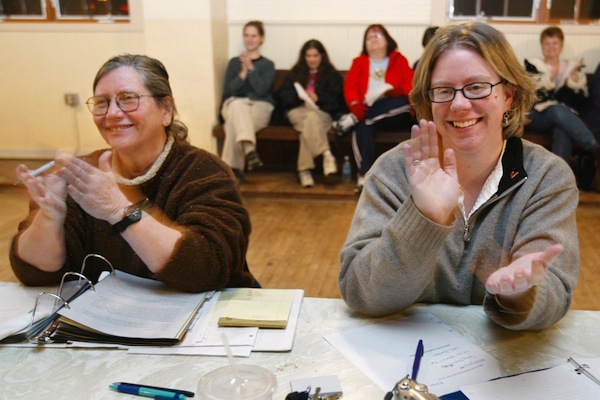January. It’s that time of year for fresh starts, new beginnings and above all, making New Year’s resolutions. One of the most important decisions to make at the turn of a new year is choosing something on which to improve. However, not enough people follow through or even attempt to make resolutions anymore, which hinders their personal growth.
Most people are inclined to believe that they must change something about their lives with the start of a new year and thus make resolutions. Reflecting on the past as well as setting expectations and goals for the future are essential steps in making meaningful and lasting resolutions. Acknowledging faults is a great way to better oneself. Analyzing low points of previous years and learning to avoid past mistakes are all parts of the self-improvement process. Evaluating and accounting for mistakes made is an essential step in preparing oneself for a positive year.
Some people simply don’t even attempt to make a New Year’s resolution because it causes too much emotional stress to reflect on shortcomings from previous years. However, resolutions are a great way to kick unhealthy habits that people want to leave behind them, and making and giving up on a resolution is better than not making one at all. Simply the act of making a resolution is just as important as keeping one.
For example, making a resolution to eat healthier can reap unexpected side effects. These include not only losing weight but increases self confidence, being more productive and a boosted mood. If one keeps up with this resolution, he or she will experience a healthier and more fulfilling lifestyle. If one eventually steers off the healthy track, at least he or she accepted the fact that his eating habits need to change. Although the satisfaction and benefits of keeping a resolution are rewarding, the mere ability to reflect on past flaws allows oneself to evaluate his own character.
Losing holiday pounds, spending more time with family, and quitting smoking are all common resolutions that people make and attempt to keep. In fact, increasing exercise time is one of the most common resolutions. Gym subscriptions and workout facilities hit record highs in January only to slowly empty as February creeps around. Lack of follow-through is unfortunate, but at least these resolution drop-outs made an effort.
Unfortunately, not everyone sticks to his or her New Year’s resolution throughout the following year. Completely changing a part of one’s life requires work and perseverance that some don’t have the effort or resources to do. Still, resolutions such as improving organization or time-management can be accomplished on a budget and have a significant positive impact on a student’s academic career.
Besides the obvious benefit of changing a part of one’s life for the better, the satisfaction of keeping a resolution for an entire year is rewarding. It isn’t realistic to believe that all people will stick to the goals they make in general, let alone New Year’s resolutions, but these goals are still worth the effort. It’s the process of contemplating the past in order to better one’s future that really makes an impact on people, and that process teaches skills that help set and meet deadlines. In order to get the full effects of achieving a goal, creating a resolution is essential but simply the process of making a resolution is a good way at acknowledging one’s faults. #











